For you to be able to choose self-love in your life, you need to first understand what it is, how it can be achieved, and kill all the noise around it that’s stopping so many people from experiencing and nurturing it. This is why we’ll explore the meaning of self-love in this post together.

What Self-love Means: Misconceptions Shattered
What causes the noise are so many misconceptions, prejudice, and misinformation about it and around it. Therefore, this post is dedicated to shattering them so there’s nothing else in your way for pursuing self-love in your precious life. These common misconceptions are probably the biggest obstacle because they push people towards guilt and self-doubt and stop them from receiving all the benefits of self-love and these benefits are countless!
If you’ve found yourself in the last few sentences, then I suggest you stay with me until the end of this post so you get the encouragement and inspiration to dedicate your efforts to loving yourself more.
At the end of the post, I’ll be also pointing out the link between good parenting and self-love.
And if you want to know how to start expanding your self-love I suggest you read my blog post 5 Questions for Your Self-love to Blossom after this one. Let’s dive in!
Note: Although I am a Clinical Social Worker, engaging with this website does not establish a professional social worker-client relationship. The information provided here is for general purposes only and should not be considered professional advice. While we strive to ensure accuracy and reliability, this content is not a substitute for professional guidance. For specific concerns, issues, or situations, it is essential to consult a qualified professional and present your situation. Read the full Disclaimer here.
This post has affiliate links which means that we make a commission from qualifying purchases at no additional cost to you. For more information read our Affiliate disclosure.
SELF-LOVE MEANING

Self-love is a skill, path, and a tool that helps you uncover your deepest authentic desires, meet your true needs in order to take care of yourself in a balanced way and provide well-being for yourself. But without exploit of others and their well-being or endangering their human and other rights. So while ”addressing” your needs you’re being responsive to the needs of others, too.
Self-love is not uniform, because the expression of self-love can be distinctive in different cultures.
This means people can take care of themselves unequally and this can still be considered self-love.
The main focus here is:
- that you stop sacrificing your well-being, mental health, and physical health so you please others
- that you support and encourage yourself to take care of your body and physical health, mental health, and personal development
- by setting the boundaries for yourself and others that interact with you so it’s comfortable to you but it’s responsive to the needs of others involved.
Pleasing others often comes from having the urge to prove to them that you’re nice, good, kind, or worthy. Or from feeling obligated to do so.

The thing to remember is that this isn’t your fault and you deserve and can live better. Society often creates constructs where you as an individual can be positioned as less valuable because of some of your choices, identities, or characteristics. It’s often enough that you’re a woman, for example, not to mention marginalized groups in one society.
And the more rigid (authoritarian/autocratic) the society the worse and more toxic it can get. So you’re not broken, this is simply a logical consequence. But that shouldn’t stop you from reaching a “happier” place.
Of course, there could be more reasons why you’re having difficulties with cultivating self-love. For example, painful experiences, abusive relationships, or lack of positive role models.
If you find that self-love is hard for you and you want to know why, read my post that unravels 6 reasons why self-love may be so hard for you: Why Is Self-love So Hard For Me? (6 Probable Reasons). But more than focusing on what brought us there, it’s important to orient towards getting out of feeling stuck or exhausted.
If you’d like to explore self-love in more detail, I have a more in-depth post on What is Self-Love and How to Start Loving Yourself that will tell you how you actually meet your needs while being responsive to the needs of others, at the same time.
YOU MAY ALSO LIKE:
WHAT SELF-LOVE IS NOT?
This topic often isn’t explored thoroughly, and you even might end up with an idea of where self-love is when you satisfy your every need all the time, regardless of how anyone feels or what anyone thinks, but that is not self-love. At the bare minimum that’s selfishness, and selfishness isn’t self-love. It’s usually an indicator that you may lack self-love.
You know the people that use others, deceive to get what they want, hurt everyone in their way to gain resources, success, or meet their needs? When they take care only of their needs that shouldn’t be wrongly associated with self-love. That’s associated with selfishness, a lack of social/communication skills (like empathy), a lack of sense of morality, and prosocial values and behavior.
Sometimes even with antisocial behavior and destructive behavior. And with a lack of self-love too. Destructive behavior can’t come from a safe, fulfilling, or peaceful place. Of course, not every destructive behavior is a bad sign or a bad thing, considering sometimes this can be a logical response to a challenging situation.
Let’s see what’s in conflict with self-love:
- Selfishness
- Excessive egoism
- Overly compensating
- Lack of empathy
- Lack of self-respect
- Chronic insecurity in yourself
- Chronic low self-esteem and chronic lack of confidence
- Unbalanced dependence on the approval of others and their opinions
- Unbalanced dependence on dominant social convention and standards, etc.
The reason why these don’t go together with self-love is they are dependent on external validation, and they’re creating a false positive self-image. So here positive self-images only exist when they’re validated externally. This doesn’t mean that “balanced” levels of all of these characteristics are issues.
It’s completely fine and welcome to face insecurities, to compensate, to care about other people’s opinions. Especially when they’re important to you, considering you’re a social being and live off of social interactions.
What can also happen is that you have a period where you can act selfish, egocentric, show less empathy, etc. Because you might need to focus on yourself only after some crisis, or big change, or can be a phase in your personal development. This doesn’t mean anything ‘bad’, it’s just something that you’re going through.
The problem is when this is not just a phase or a logical or natural process or consequence but rather a pattern of behavior and functioning. And when you do nothing or very little to make progress towards a more adjusted lifestyle.
Recommended For You:
Paid link: Self-Love Workbook for Women: Release Self-Doubt, Build Self-Compassion, and Embrace Who You Are (Self-Love Workbook and Journal)
Embrace who you are with this guided self-love book for women of any age and any background. You’ll embark on your journey of self-discovery by learning what self-love is, and then immersing yourself in exercises to help you build your self-esteem and improve or elevate your relationships.
This very successful self-Love workbook created by a fellow Megan Logan, LCSW is designed with a clear intention to empower women on their journey of self-discovery and self-love. So if you like my approach to self-love you’ll probably like this. Because as you’ll see that I always emphasize that to increase self-love we need some practice and consistency.
The self-love workbooks typically include exercises, prompts, and activities that encourage self-reflection, self-compassion, and self-care, in addition to practical tools and strategies for setting boundaries, managing stress and anxiety, and cultivating healthier habits.
By getting a self-love workbook, you’re benefiting from a valuable resource that can empower you to take control of your mental and emotional health, develop a more positive and compassionate relationship with yourself, and in the end, improve your overall well-being.
I’ve collected a few helpful Self-Love Workbooks in my post: The Best Self-Love Workbooks To Help You Finally Break Free From Self-judgement Through Self-Compassion And Self-Acceptance.
You may want to also check out alternatively (or combine the 2 workbooks):
Self-Love Workbook for Black Women: Empowering Exercises to Build Self-Compassion and Nurture Your True Self (Self-Love Workbook and Journal)
As an African American woman, juggling many roles can leave little time for self-care. With this in mind, here’s an empowering self-love and self-care workbook designed to help you prioritize your joy, healing, and growth, with affirmations and exercises that nurture your authentic self.
Embrace self-love, build inner peace, and cultivate confidence while exploring themes of self-compassion and community.
Paid link: SELF-LOVE JOURNAL FOR WOMEN: Prompts and Practices for Your Journey to Self-Worth, Self-Care, and Self-Acceptance (Workbook and Journal)
Self-love journals often include prompts for self-care activities and practices. By prioritizing self-care and making it a regular part of your routine, you can nurture your physical, emotional, and mental well-being.
This Self-Love journal includes prompts and practices for taking a path of self-worth, self-care, and self-acceptance.
Women everywhere encounter unrealistic societal expectations that lead to feelings of overwhelm and discontent with themselves. However, discovering the path to self-love and embracing our uniqueness can significantly alter our perspective on life, and this guided journal is designed for just that.
Paid link: A Year of Self-Care: Daily Practices and Inspiration for Caring for Yourself (A Year of Daily Reflections)
This is a 12-week anxiety and self care journal that will help you process what’s occupying your mind and gently re-frame your thoughts, so you can manage your worries before they get to spiral out of control. This could potentially help if you’re feeling anxious even to start self-exploration.
It was designed to meet you where you are and guide you to developing a practice of dedicating a few minutes a day to reflect on your thoughts, detect the sources of your anxiety, and prioritize your overall wellness and mental health. This is dedicating a few minutes to yourself you really need.
It has:
- Daily Journaling Pages
- Self-Care Ideas
- Therapy Reflections
- Emotional Support Cheat Sheet
- Fear-Setting Exercises
- Habit Trackers
- Monthly Progress
Paid link: The 5-Minute Self-Care Journal for Women: Prompts, Practices, and Affirmations to Prioritize You
This journal offers quick and easy self-care practices to meet your needs amidst a busy life.
It stands out with 150 uplifting prompts promoting growth mindset, mindfulness, and positive intentions.
Spend just 5 minutes on self-love with its effortless questions, affirmations, and actions.
Plus, its user-friendly design makes reflection recording enjoyable.
Paid link: Self-Love Journal for Teen Girls: Prompts and Practices to Inspire Confidence and Celebrate You
If you’re a teen (or get this for your teen if you’re a parent) start the new year by encouraging yourself to embrace self-love and confidence.
The Self-Love Journal for Teen Girls offers affirmations, reflective prompts, and creative activities that can help you understand your emotions and celebrate your uniqueness.
With uplifting quotes and practical exercises, it’s a powerful tool for fostering self-awareness, self-worth, and self-care.
Paid link: SELF-CARE ACTIVITIES FOR WOMEN: 101 PRACTICAL WAYS TO SLOW DOWN AND RECONNECT WITH YOURSELF
Prioritizing well-being is crucial, especially for women who often/usually prioritize others.
“Self-Care Activities for Women” offers a variety of ways to relax and find joy, covering emotional, mental, physical, social, and professional care.
With 101 simple activities, from creating a joy playlist to cooking a healthy meal, this book encourages making time for ourselves and cultivating a habit of self-check-ins.
WHY IS SELF-LOVE IMPORTANT?
Self-love is important if you want to have a healthy, supportive connection with yourself and other people, too.
The reason for this is the fact that having love for yourself helps you meet your needs better. Which means you know how to take care of yourself better in general.
This leads to better decision-making and more self-esteem.
And when you know what you need, then you tend to form quality and functional relationships as opposed to toxic ones.
Lack of self-love can result in bad habits or a bad lifestyle, troubling personal and professional relationships, physical or mental health problems, etc.
If you’re interested in learning what are the 5 essential reasons why is loving yourself important, here is the link to my blog post that covers this.
WHY IS SELF-LOVE IMPORTANT IN A RELATIONSHIP?
Self-love can be extremely important in any type of relationship, so in intimate partnerships, friendships, or professional relations.
Firstly, it ensures that you’ll set comfortable (flexible) boundaries between you and the others.
This reduces the probability of someone being abusive to you, overstepping the boundaries, taking advantage of you, and similar. It’s simply because this way they know what you won’t let anyone do to you when in a relation to you.
Having set proper boundaries will even ensure some people that are prone to exploit others bypass you or leave you. Either as friends, partners, or colleagues. It is not a shield but it’s pretty effective still.
And the more aware of your value (worthiness) you are, the more you’re likely to protect it in the best way.
Secondly, when your identity is solidified you feel better about yourself, about your place in the world, and your worthiness, so your self-love gets to be more rounded.
With more rounded self-love and more sense of your personal worthiness, you’re more aware of what you need as well as what you don’t want or need, so then you’ll be likely to form and have better relationships.
This shouldn’t be understood as “If I don’t love myself I can’t love others or they can’t love me.” Or assuming that before you are certain that you love yourself yoy should stay away from relationships.
Through these relationships we:
- get to know ourselves more,
- learn how to be with others,
- have our characteristics reflected back at us, as well as
- evolve, especially if we become more self-aware along the way.
Recommended Product:

Unfuck Your Boundaries: Build Better Relationships Through Consent, Communication, and Expressing Your Needs (5-minute Therapy)

How to Be Accountable Workbook: Take Responsibility to Change Your Behavior, Boundaries, & Relationships (5-Minute Therapy)

And finally, with more love for yourself comes more balanced independence. Because more self-love means more self-esteem, and more self-esteem means less dependence on others, their help, or their approval.
This is important because nobody should carry the baggage for being your only source of satisfaction or happiness. And this happens to people when they skip their personal development and jump to dependence on external factors, including relationships, partners, work, kids, etc.
It sure looks easier to do it like that now, but later in life, this choice can become your imprisonment.
Also, the more balanced your independence is, the more space you’ll give your kids to be allowed to a rising and evolving indepethemce and autonomy as they grow.
Then you’ll have much better relationships with them.
If you want to go deeper into this topic read my full exploration on Why Self-love Is Important In A Relationship.
WHY IS SELF-LOVE SO DIFFICULT?
Self-love may be challenging for you for various reasons, but let’s mention several:
- Negative Messages: External influences, such as societal norms and messaging, may undermine our efforts to accept and love ourselves, creating a struggle against societal expectations.
- Fear of Going Against the Norm: The difficulty arises when we conform to societal expectations, even if it leads to dissatisfaction. Breaking away from these norms requires courage and a willingness to embrace individuality.
- Lack of Authenticity from a Young Age: Upbringing and societal conditioning may suppress authenticity, making it hard to break free from learned behaviors and embrace one’s true self.
- Perfectionism: Struggling with perfectionism can impede self-love, as the constant pursuit of flawlessness creates unrealistic expectations and hinders the acceptance of imperfections.
- Limited Knowledge of True Self: A lack of self-awareness and experience can hinder self-love. Learning about yourself through exploration, relationships, and self-reflection is crucial for fostering a deeper understanding.
- Resistance to Change: Familiarity, even if detrimental, can create comfort. Moving away from a known but unhealthy environment, including resistance to self-love, requires effort and a gradual shift towards new, positive habits.
If you want more information on these reasons, read my post that explores them in more detail:
WHY SHOULD YOU START LOVING YOURSELF?
I want ro briefly touch upon five major motives for deciding to go towards loving yourself:
- Mental Health Benefits: Prioritizing self-acceptance and self-love enhances mental well-being, fostering a positive mindset, combating negative self-talk, and reducing stress and anxiety.
- Better Relationships: More self-love leads to increased awareness of personal needs, clear boundaries, effective communication, and prioritizing well-being, resulting in healthier and more fulfilling connections with others.
- Professional Accomplishments: Self-love positively influences professional success by instilling belief in one’s abilities, promoting self-care, setting boundaries, and aligning career choices with authentic interests and values.
- Personal Evolution and Growth: Embracing self-love creates an environment for personal development, self-awareness, learning from mistakes, and intentional growth by prioritizing well-being and exploring new experiences.
- More Determination and Self-Esteem in Life: The connection between self-love and determination lies in believing you deserve success, fostering confidence, facing challenges optimistically, and prioritizing self-care for increased confidence and determination in leading a fulfilling life.
Read my post WHY SHOULD YOU START LOVING YOURSELF? (5 MAJOR MOTIVES) for more detail and through explanations.
HOW TO KNOW WHEN YOU’VE STARTED LOVING YOURSELF?
If you want to know whether you’ve started loving yourself you should look for some signs that may indicate that this is so. Such as:
- Authentic Living: You become less concerned with societal expectations, expressing your true self authentically.
- Increased Self-Esteem: Self-love boosts self-esteem, fostering a positive self-image and “healthy” boundaries.
- Independence and Determination: You become less reliant on external validation, making decisions based on your true desires and needs.
- Growth of Individuality: Embracing your uniqueness and letting go of societal standards leads to personal growth.
- Self-Acceptance and Self-Awareness: Cultivating self-acceptance involves embracing imperfections and integrating mindfulness for self-awareness.
Explore this topic more detaily by reading my post that covers it:
SELF-LOVE AND SELF-ESTEEM
These two are close-knit because with more self-love there’s more self-esteem. I mentioned this already, but let’s explore it a little deeper.
Self-esteem comes from feeling good in your skin, accepting every part of who you are, so you can change the aspects you’ve found that call for change, to be able to progress and transform. As a result, you love yourself more.
But it also goes the other way around, so circular – you learn how to love yourself more, and as an outcome, your self-esteem is growing. Because you can rely on yourself and trust your ability to become the ”best” version of yourself.
(This term is widely used but I don’t like it because it suggests you need to become someone else, which is not true. So it’s better to say to become who you want to be or to be yourself more.)
Self-esteem doesn’t come from being perfect, because that’s not true self-esteem.
And all of us see this the second we don’t look so perfect, or when we become not so perfect in the eyes of others.
True self-esteem comes from a strong identity and solid sense of self, and also from going where we need to go in life authentically. So choosing our own way, and not copying others to avoid uncertainty or the risk of being unaccepted.

The more self-esteem, the less you’re likely to follow and copy others. And you’ll be less prone to blindly or frightenedly following social convention and standards.
And also you’ll be less prone to pleasing others or being too dependent on their opinion.
Of course, this doesn’t mean that you couldn’t care less what others think. This simply means you’re not attached to it too closely.
When our identity is strong and we’re more centered, we tend to be more authentic and more independent. Then we make better decisions and over time we get more and more confident due to our more and more skilled decision-making.
Related:
SELF-LOVE VS. SELF-COMPASSION
When you practice self-love the way it’s right for you, you start being more compassionate with yourself. Also, being compassionate with yourself is the way to increase self-love.
If you see that you need to focus on self-compasion, find a self-love workbook that can help, right here: 10 Best Self-love Workbooks for breaking free from self-judgement through self-compasion and self-acceptance.
What usually happens when we’re facing difficulties with self-love is that we’re strict with ourselves.
And it’s unbelievable, considering at the same time we’re usually compassionate with all the others that are close to us!
So we tell them to be kind to themselves, while we’re being extra harsh to ourselves. Even in the exact same situations that we were asked to comment for them.
Do you have experience with this? I bet you do.

So next time you start with negative self-talk, you stop for a second and think about what would you say to your friend if they were in your shoes at that moment.
When you see the difference, consider talking to yourself the way you would to a friend. This will move your self-love to the next level.
The key is to understand that even if you don’t like things that you did or that you do, you find a way to accept different parts of yourself.
Especially the ones you don’t like because this is the beginning of the way to changing them.
And of course, to continue working on changing them so you get where you want to go. Or simply stop with some things or practices.
So then even if it’s not going the way you’d like or you relapse, you’re still compassionate with yourself and nurture your way to your goal this way.
Don’t have enough time but really want to dig into common Self-love Misconceptions? If you’d like to take it with you get it as a print-friendly pdf with no interruptions on page. Plus you’ll become a direct supporter of this blog.
WHAT IS THE SECRET TO SELF-LOVE?
The secret to self-love is a balance between meeting your needs and responding to the needs of others.
Being ignorant or neglectful to the needs of those you have continual interaction with, doesn’t speak highly of your self-love. Because when your relationships aren’t functional that can be in relation to the level of your self-love and self-respect.
And you’ll continue to feel unsatisfied because this way it’s hard to feel successful in any of your relationships. Which will additionally affect the respect and love you have for yourself in a negative way.
This is one side of the spectrum. And on the opposite side, we could position ignoring and neglecting your needs and always behaving like a servant to others. This also doesn’t speak highly of your self-love.

This should never mean that it’s not good for you to be in service of others. Like supporting other people, giving them a helping hand, engaging in social movements that will lead to the change in the position of different social groups in society, etc.
Moreover, in my opinion, people will only be truly satisfied and fulfilled long-term if they focus more on helping others than on chasing their ongoing comfort in life.
It’s best to say that what you need is to find a fine balance between meeting your needs and responding to the needs of others and setting proper boundaries that are flexible enough.
If you don’t, you either:
- end up with burnout when you don’t set boundaries for yourself and in your relations with others,
- or as someone lacking empathy if you continue to take advantage of others. Selfishness is or at one point becomes an exploit of others.
When you’re dealing with so called “toxic persons”, many times they’ll try to present they have confidence, and self-esteem, and that they love themselves because they’re selfish and take everything from everyone. But that’s a big fat lie, so don’t believe them.
If they have the need to exploit or hurt others to feel powerful – hence worthy, that’s a huge problem with self-love, confidence, identity, and personality.
These people overcompensate so they can preserve a positive self-image. And that’s enough for you to understand that they’re far far far away from true confidence, self-love, and self-respect.
You may want to read also:
MY GOOD READS/CLASSES RECOMMENDATION:
- The Self-Love Workbook: A Life-Changing Guide to Boost Self-Esteem, Recognize Your Worth and Find Genuine Happiness (Self-Love Books)
- Self-Love Workbook for Women (paid link): Release Self-Doubt, Build Self-Compassion, and Embrace Who You Are (Self-Help Workbooks for Women)
- How to Be Accountable Workbook: Take Responsibility to Change Your Behavior, Boundaries, & Relationships (5-Minute Therapy)
- Unfuck Your Boundaries: Build Better Relationships Through Consent, Communication, and Expressing Your Needs (5-minute Therapy)
- No More Perfect Moms: Learn to Love Your Real Life
- More Than A Mom: Finding Purpose In the Everyday Monotony Without Losing Yourself Or Your Sanity
MOST COMMON SELF-LOVE MISCONCEPTIONS
Self-love misconceptions often revolve around misunderstandings of its nature and practice.
One common misconception is that self-love is synonymous with selfishness, when in reality, it involves caring for oneself in a balanced way without neglecting others.
Another misconception is that self-love means constant positivity, whereas it also embraces acknowledging and learning from challenges.
Some may think self-love is a destination, but it’s an ongoing journey of self-discovery and growth.
Additionally, there’s a misconception that external validation is equivalent to self-love, while the latter primarily stems from internal acceptance and appreciation.
Clarifying these misconceptions is essential for gaining a more accurate understanding of self-love.
Let’s talk about the most common ones now.
CAN SELF-LOVE BE TAUGHT? (MISCONCEPTION 1: YOU CAN’T GROW SELF-LOVE)
Yes, absolutely! Actually, all of us are learning about it continuously, to get better and better!
Everything we had learned can be unlearned and replaced with something else that is more functional and serves us more. So does self-love.
What you can do to increase self-love is find a way that suits you best and that gives the best results specifically for you. So there are no done for you solutions.
But there’s good news!
Nowadays you can choose from so many options and find what works for you. So don’t be rigid with yourself and give yourself permission and enough space to find that best way.
Nobody can create your best life the way you can do it yourself! Remember that. And get creative.
Recommended Product:
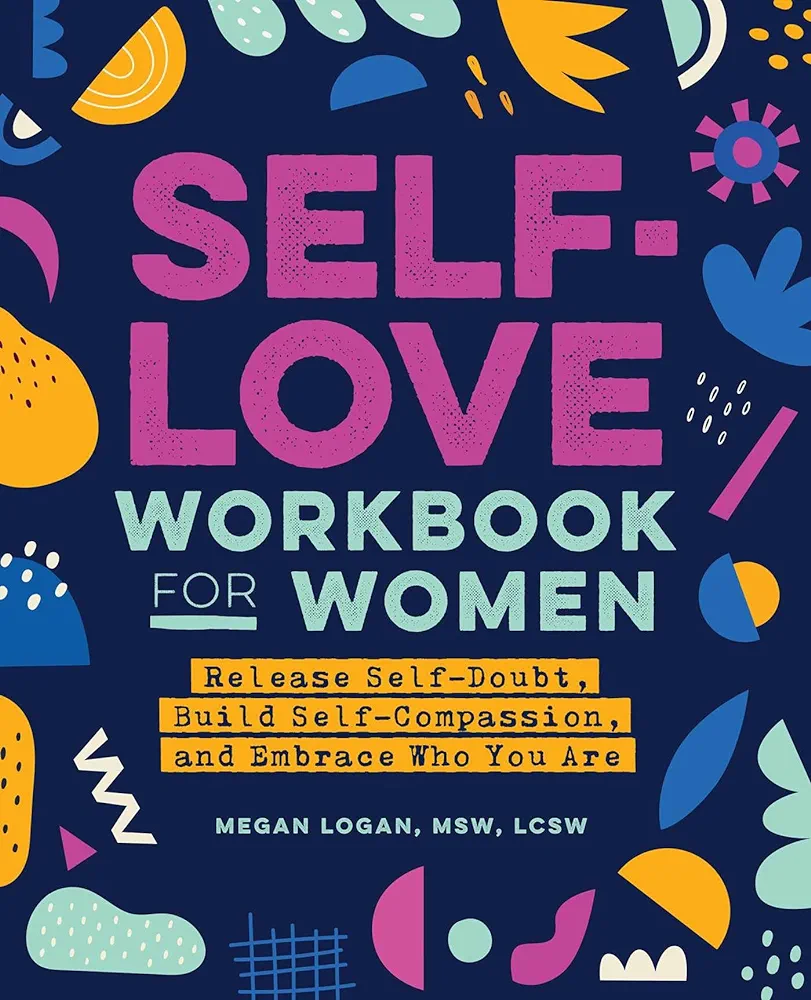
Self-Love Workbook for Women: Release Self-Doubt, Build Self-Compassion, and Embrace Who You Are (Self-Help Workbooks for Women)
WHERE TO START WITH SELF-LOVE?
You can decide to go for self-help which is self-guided. Or use external assistance like for example psychotherapy, but not limited to it only, of course.
The first step is reflecting on where you are now and where you want to be and why is this important to you.
So you can define your next steps and what you need to do to truly increase self-love. I’ve written a full blog post on this topic, you can read it here – How to Start Loving Yourself.
If you decide to go for self-help, what you need to understand is that reading about self-love isn’t enough.
You need to practice what you’ve learned consistently, and you need to find the best way for you specifically.
You can’t copy ready-made solutions. Because nobody else is you and vice versa and you have your own pace.
Nobody else has the exact same experiences.
Nobody has your strengths or your goals.
IS SELF-LOVE SELFISH? (MISCONCEPTION 2: SELF-LOVE EQUALS SELFISHNESS)
Increasing self-love is not considered and should never be considered selfish.
Even though there is a common belief that people with selfish personality characteristics love themselves more than those that aren’t seen as selfish, the truth is actually the opposite.
The key is knowing what is enough for you, so you can release the rest that is surplus so then you don´t have to take from others.
Or to fear you’ll be left behind.
And taking doesn’t just apply to material things.
It can be energy, motivation, self-esteem, willpower, desire for life, etc.
Selfish people have a hard time releasing the surplus because they face the fear of not having enough. Considering deep down they might believe they aren’t worthy enough to have it in the first place, so they continue grabbing.

If these people knew what they needed for their fulfillment, they wouldn’t have the need to grab things.
Then they’d rather choose to share with others because this creates much more positive outcomes and feelings.
And the other thing you might personally be cautious about (so you may be withdrawing from pursuing self-love) is being seen as selfish when you practice self-love.
But the truth is people who are ”right for you” will never see taking care of yourself properly (always without using or harming others) as selfishness.
And you will lose people that benefit from your lack of self-love, which is always a good thing.
It can be painful but in the long run, you’ll be saving yourself from a lot of pain if you lose them.
If you found the information on the blog helpful & inspirational and you feel like giving back, you can do it by clicking the donate button after entering amount you’re comfortable with. I’ll use it to create and deliver more useful content and resources like this. Thanks for your precious contribution!
WHEN DOES SELF-LOVE BECOME SELFISH?
The shortest answer is NEVER. But let’s explore what this means.
Self-love is not selfish by nature.
But it can be interpreted this way by those who are used to you being always available, pleasing them, and catering to their every need. While taking care of yours very poorly, either by them, (which is almost always the case), or by you, or both.
This is so common for women because there’s social pressure (and expectations) for it.
Just think about the first questions people ask women even when they see them for the first time – when are you going to get married, have kids, oh you’re not married yet, but why?? (I have personally experienced these numerous times from people I’ve never seen before in my life, too, I can’t even count.)
It happens to young men but it happens sooo much more often to women and is considered as significant life goal for them.
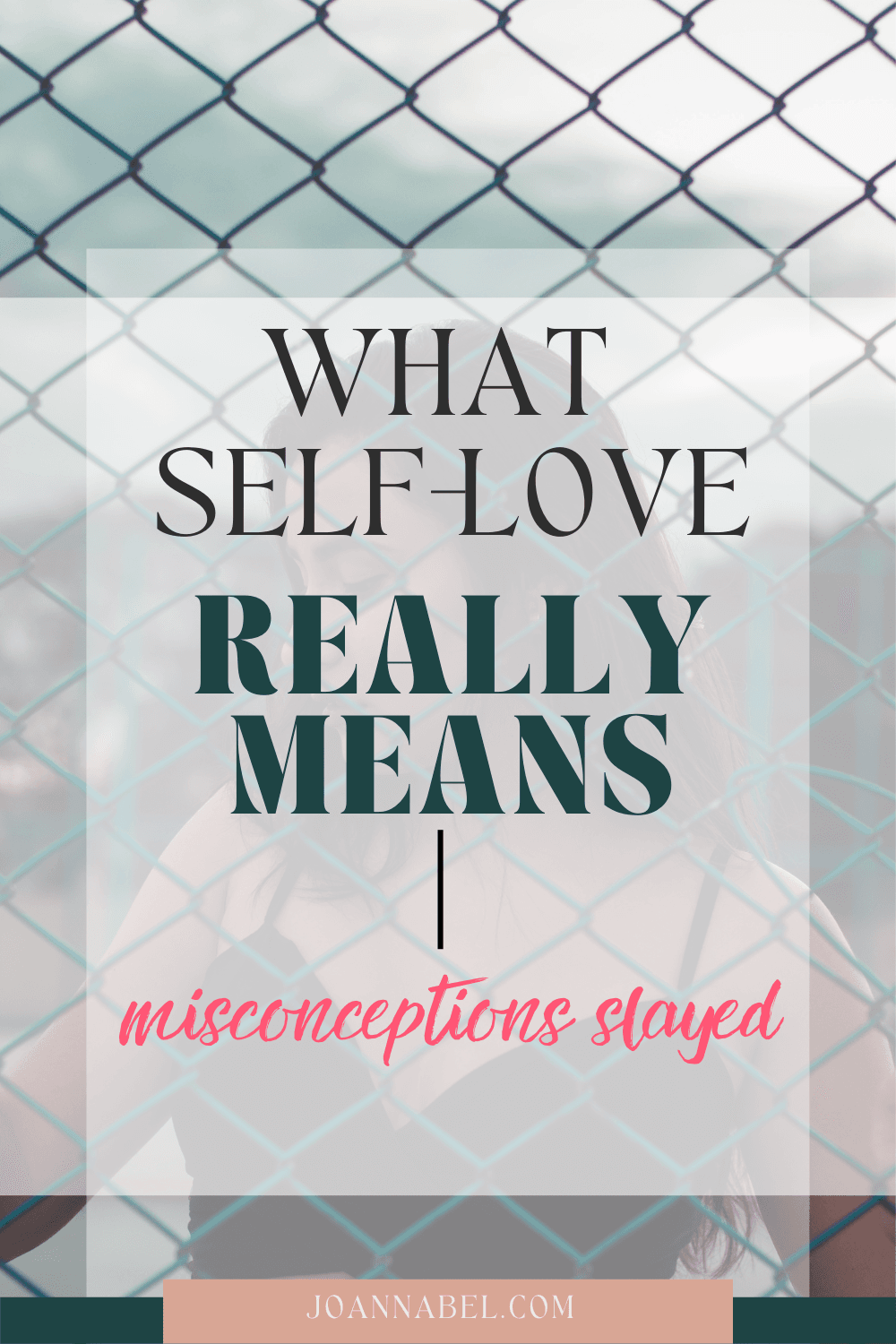
These questions are not just casually asked and they don’t just represent prying. They represent the women’s position and value in one society.
Women in most cultures (or all, considering our societies are largely patriarchal) are shrank down to either their role as a wife or role as a mother or as a sexual object (body, good looks, sex appeal).
Have you noticed how much more are people careful (often they’re only careful only then) in treating women when they’re pregnant with a child, for example? They may even warn others about watching what they’re saying in front of a pregnant woman.
Generally speaking, they’re almost never encouraged to explore (and show) their individuality, freedom, solitude.
Or even to not have kids if they don’t want to.
And if they express any frustration it’s often banalized to either them not being married, or not having kids, or not being that young anymore. (”What else can it be?!”)
These are all stereotypes or stereotypical perspectives, and if you use them, please reconsider. And if you’re experiencing that, stand up to those who tend to limit your freedom and choices.

You have the right to take care of yourself the way you choose to and to love yourself and your choices.
If they continue to harass you, just shut them down from your life.
Or limit the contacts with them if you can’t.
You have the right to do this too.
Why would you choose to live in a toxic environment? (Note: if you are a victim of violence between intimate partners, that’s been going on for a while, this might not be a choice anymore. Considering abusers usually hold the victim forcibly tied up with different forms of manipulation or threats. Plus if you consider leaving you need a good safety plan because the risk for harm increases when a victim leaves the abuser in comparison to when she stays.)
And the other reason is that women are taught (this has been passed on to them) to believe they need to do this because it’s their obligation.
Let me tell you that it isn’t.
There is a wide range of different behaviors going on between selfish and too servile.
There’s a wide space for you to be compassionate to others and be in service of others, but not at a cost of physical or mental health.
You were not born to be anyone’s servant.
Not your parents, not your partner, and not your kids.
You were born to expand yourself not to shrink yourself so others can feel good about themselves.
Set boundaries for yourself and set them for others to follow and stick to them.
It’s hard at the beginning, but when you see that nobody died after you’ve set your boundaries, you’ll even regret you didn’t do this much sooner.
Pardon my French but every woman needs to hear that.
Recommended Products:

The Self-Love Workbook: A Life-Changing Guide to Boost Self-Esteem, Recognize Your Worth and Find Genuine Happiness (Self-Love Books)
IS SELF-LOVE NARCISSISM? (MISCONCEPTION 3: CHOOSING SELF-LOVE IS NARCISISTIC)
No. Narcissism as a personality characteristic at its core can be the signal of a lack of self-love. I’m not talking about narcissistic personality disorder here.
Instead of self-love and balanced self-esteem that comes from knowing your value, the person may be too self-centered, may be facing deeper insecurity, excessively compare with others, and can seek compensation in different ways in order to feel good enough.
And this ends unsuccessfully. Because what needs addressing are things that are behind it all, and by over-compensating, the person is only maintaining or enhancing the issue.
Considering this kind of insecurity comes from within, this means that it has to be cured from within too, meaning that the inner work is needed.
(If this is you, then you can easily remember how nothing that others say or no matter how much evidence you find of your worthiness doesn’t really help for unbalanced insecurities to go away.)
Naturally, this doesn’t mean by yourself or without the help of others.
The person has to establish or solidify integrity and identity (or integrate different identities), instead of seeking external validation to feel good about herself or himself.
Related:
WHEN IS SELF-LOVE DANGEROUS AND IS IT BAD? (MISCONCEPTION 4: SELF-LOVE IS DANGEROUS)
Self-love is never dangerous and bad by nature. If you practice real self-love you can only benefit from it.
But what happens is that other practices or other characteristics are being mixed up with or identified as self-love.
Like narcissistic characteristics, taking care only of your needs, or selfishness.
So if people confuse them with or wrongly consider them as a sign of self-love, they can think that self-love can do harm. Because you see people with these characteristics do harm or you don’t approve of their selfishness.

What can seem as bad is maybe the fact that some people will leave.
But this is probably a good thing for you because this usually means they prefer when you have less self-love.
They probably benefit from it in many different ways.
So you should actually prefer they’re gone from your life if they’re not willing to adapt.
Recommended Resources For You:
HOW IS SELF-LOVE RELATED TO ACCEPTANCE?
Self-love and acceptance are related in at least 2 ways.
Firstly, to really love yourself you, need to accept yourself and everything about yourself. The good and the bad.
Then you can start changing things you don´t want in your life and cherish and enhance the parts that you do.
And secondly, trying to achieve acceptance everywhere you go and from everyone is negatively affecting your self-love and it could be ruining your life. I have explained this more thoroughly in my blog post Difference between needs and wants through examples, so consider checking it out.
The reason for this is the fact that by trying to do this, you’re only depending on someone else’s approval.
You may find this helpful as well:
IS SELF-LOVE THE BEST LOVE?
If you look at the bigger picture, self-love can be considered the best love because of all the positive outcomes that it produces.
When you love yourself more, you tend to make better decisions which means they’re based on your true desires and needs.
As opposed to only doing things you’re expected to do or following and copying others.
It leads to more success and more satisfaction with your life.
At the same time you make better connections, form stronger relationships, and it all leads to more love and more happiness in your life altogether.
So more self-love can lead to more love in all your interpersonal relationships.
If you want to explore why self-love is often considered the best love, read my post about 46 reasons why self-love can be labeled as ‘optimal’ self-love: Is Self-love The Best Love You Can Give Yourself? (+46 Reasons Why).
If you found the information on the blog helpful & inspirational and you feel like giving back, you can do it by clicking the donate button after entering amount you’re comfortable with. I’ll use it to create and deliver more useful content and resources like this. Thanks for your precious contribution!
CAN SELF-LOVE HEAL?

Self-love can heal because the consequence of self-love is a skill or set of skills that you use to take care of yourself the best way possible, that is custom specifically for you.
So then you use them after you’ve encountered an unpleasant or difficult experience.
Therefore, whatever happens to you, especially the negative stuff or hurt, with more self-love it’s more probable that you will know how to take good/better care of yourself afterward.
Also, hurtful experiences can affect your self-love and self-esteem negatively. But what you need to do then is to be self-compasionate and patient with yourself.
This will be a sign of self-love and a huge step forward.
And when some of your experiences affect your self-love, the best way to heal is to rebuild and strengthen or empower yourself. And recover the love for yourself this way.
HOW IS SELF-LOVE CONNECTED TO GOOD PARENTING?
Self-love is close-knit with good parenting because of many different reasons. We should point out at least a few.
Firstly, when you’re modeling self-love to your children that’s the best gift you can give them. Because it’ll lead to so many benefits that you wouldn’t know what to do with yourself with so much excitement and satisfaction with how their lives turned out.
So positive example is the easiest way for you to ensure that they will follow it in their lifestyle.
Secondly, with more self-love, you’re prone to better decision-making about your family life which will lead to more positive outcomes for your children.
Thirdly, it can lead to more satisfaction and happiness in your life and this will reflect in their lives too. Because you will treat them better, and at the same time they’ll be happy to have a parent like that.

Next, more self-love usually means you have more functional and fulfilling relationships. And this reflects in your intimate partnership, in your and your partner’s relationship with kids, and with other people important to you.
Finally, self-love means taking care of yourself so you’re able to take care of your kids the best way you can.
If you neglect yourself your children will pay the due.
This isn’t always true, because you might end up as the only one that’s losing here and I must say it again – you’re not anyone’s servant. And you need to set boundaries for everyone’s sake, not just yours.
It may sound counterintuitive, because you may think that the more you give the better. But that’s not the reality.
The reality is that you need to give enough. And you can’t give enough if you lose yourself, your strength, and parental capacities along the way.
SELF-LOVE IDEAS
There are some ideas and practices you can consider if you’re ready to experience benefits of self-love:
- Self-Compassion: Embrace self-compassion through kind self-talk, cultivating a nurturing relationship with oneself, and countering self-critical thoughts.
- Meaningful Self-Care: Engage in intentional self-care activities that go beyond superficial practices, focusing on mind, body, and soul nourishment.
- Personal Development: Invest time, effort, and resources in personal development to deepen self-awareness, step outside comfort zones, and enhance self-esteem.
- Self-Reflection: Prioritize self-reflection to better understand thoughts, emotions, and experiences. Develop self-awareness through practices like journaling, meditation, or therapy.
- Setting Boundaries: Exercise setting boundaries, especially for those with overly soft boundaries, to enhance self-respect and prevent energy-draining situations.
- Accepting Imperfections: Embrace imperfections as a natural part of being human, shifting focus from unrealistic standards to self-compassion and authenticity.
- Setting Goals: Focus on setting and pursuing goals as an act of self-empowerment, recognizing inherent worthiness, and prioritizing physical, emotional, and spiritual well-being.
Read my post 7 IDEAS FOR SELF-LOVE GROWTH THAT IS EXPONENTIAL for more details and guidance.
SELF-LOVE ACTIVITIES FOR ADULTS
By engaging in activities that promote self-love, you can gradually build a better, stronger, and more supportive relationship with yourself. So let’s mention some of them:
- Practicing Positive Self-Talk: Replace negative self-talk with affirmations to cultivate self-acceptance and increase feelings of self-worth and confidence.
- Spending Time with Supportive People: Surround yourself with individuals who uplift and support you, positively influencing your love for yourself.
- Practicing Gratitude: Reflect on things you’re grateful for daily to shift focus away from negativity, fostering optimism and resilience for a more positive self-image.
- Practicing Self-Compassion: Being kind to yourself in difficult times strengthens self-acceptance, fights negative self-talk, and fosters positive emotions.
- Surrounding Yourself with Positivity: Engage with positive affirmations, quotes, and influences, creating an optimistic outlook and increasing self-esteem.
- Letting Go of Things: Release grudges, unfulfilling relationships, and unrealistic expectations to make room for self-love, growth, and positive change.
- Goal Setting: Setting and achieving goals increases self-worth, confidence, self-awareness, and a sense of accountability, contributing to self-love.
- Connecting with Your Spirituality: Practices like mindfulness and meditation enhance self-awareness, meaning, and a sense of belonging, fostering self-love.
- Prioritizing Healthy Relationships: Focusing on healthy connections builds a strong support system, boosts confidence, and helps establish a positive self-image.
- Risk Taking: Stepping out of your comfort zone and taking risks builds self-confidence, resilience, and a sense of agency, contributing to self-love.
- Embracing Your Flaws: Accepting imperfections promotes self-love, resilience, creativity, and deeper connections with others.
- Setting Boundaries and Saying No: Establishing clear boundaries supports self-respect, aligning with values and needs, crucial for maintaining a healthy sense of self-love.
I wrote about this in much more detail in my blog post:
SELF-LOVE HACKS
- Be Mindful About Comparison: Recognize when you’re comparing yourself to others and understand its impact on self-esteem. Shift towards conscious self-acceptance instead of perpetuating the never-ending cycle of comparison.
- Practice Self-Compassion: Cultivate gentleness with yourself in both good and challenging times. This enables personal growth by allowing flexibility, experimentation, and acceptance of imperfections.
- Set an Intention to Notice Harsh Self-Talk: Gradually shift to a more supportive self-talk by first becoming aware of negative internal dialogue. This fosters flexibility in setting demands on yourself, leading to more harmony and accomplishments.
- Journal for Self-Exploration and Self-Discovery: Use journaling for self-reflection, raising self-awareness, processing emotions, and discovering genuine desires independent of societal expectations. Journaling helps clarify thoughts and articulate ideas.
- Exercise More Independent Decision-Making: Overcome fear and anxiety around making decisions without seeking constant validation. Gradually free yourself from the need for everyone’s approval, fostering authenticity and autonomy.
- Embrace Insecurity: Allow yourself to feel and navigate through insecurities. By acknowledging and processing them, you build resilience, develop self-confidence, and gain a more balanced perspective of yourself, valuing strengths while working on areas for improvement.
Read more about them in my post:
SELF-LOVE RESOURCES
Self-love resources are tools, materials, or support systems designed to help you develop a positive relationship with yourself by learning about yourself and knowing yourself better, enhancing self-esteem, and cultivating a sense of self-worth.
I have several blog posts that feature different self-love resources that you can check out:
Latest Posts:
- How To Help Cultivate Your Child’s Interests in Art

- The Bedroom Door: Why Privacy for Teens Isn’t Optional

- The Importance of Play in Child Development

- 5 Hobbies That Will Help You Connect With Your Teens

- A Guide to Balancing Parenting Roles After Divorce

- Gifts for Your Teenager That They’ll Actually Enjoy

FINAL THOUGHTS ON WHAT SELF-LOVE IS
Well, this exploration of self-love’s meaning was fun and exciting for me. And I really hope it feels the same way for you. And that it inspires you to dedicate your time and efforts to loving yourself more.
Especially now that you know that there’s not a single negative thing in choosing self-love!
It was so important to remove all the misconceptions, confusion, and misinformation that are relentlessly going around self-love and preventing you from embracing it.
So you can release any fear, feel empowered, motivated, liberated, and inspired to make a decision to love yourself more! To explore your needs and desires and never neglect yourself anymore!
If you want to know how to start expanding your self-love, again I suggest you read my blog post 5 Questions for Your Self-love journey to begin. This can be your pathway to well-rounded self-love.
I’m grateful for your attention and see you in my next post! But before you go please share this post so that we can help more people liberate themselves, too.
Thank you and I’ll see you in the next post, such as: 100 REASONS WHY YOU (SHOULD) LOVE YOUR CHILD.

3 Biggest Mistakes With Self-acceptance
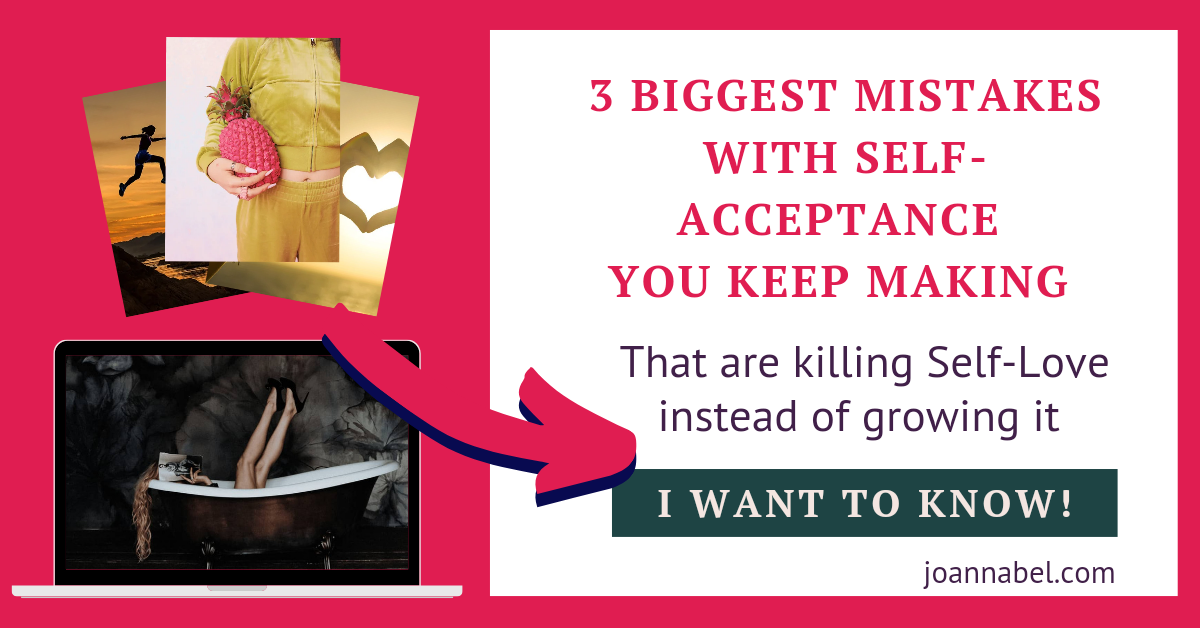
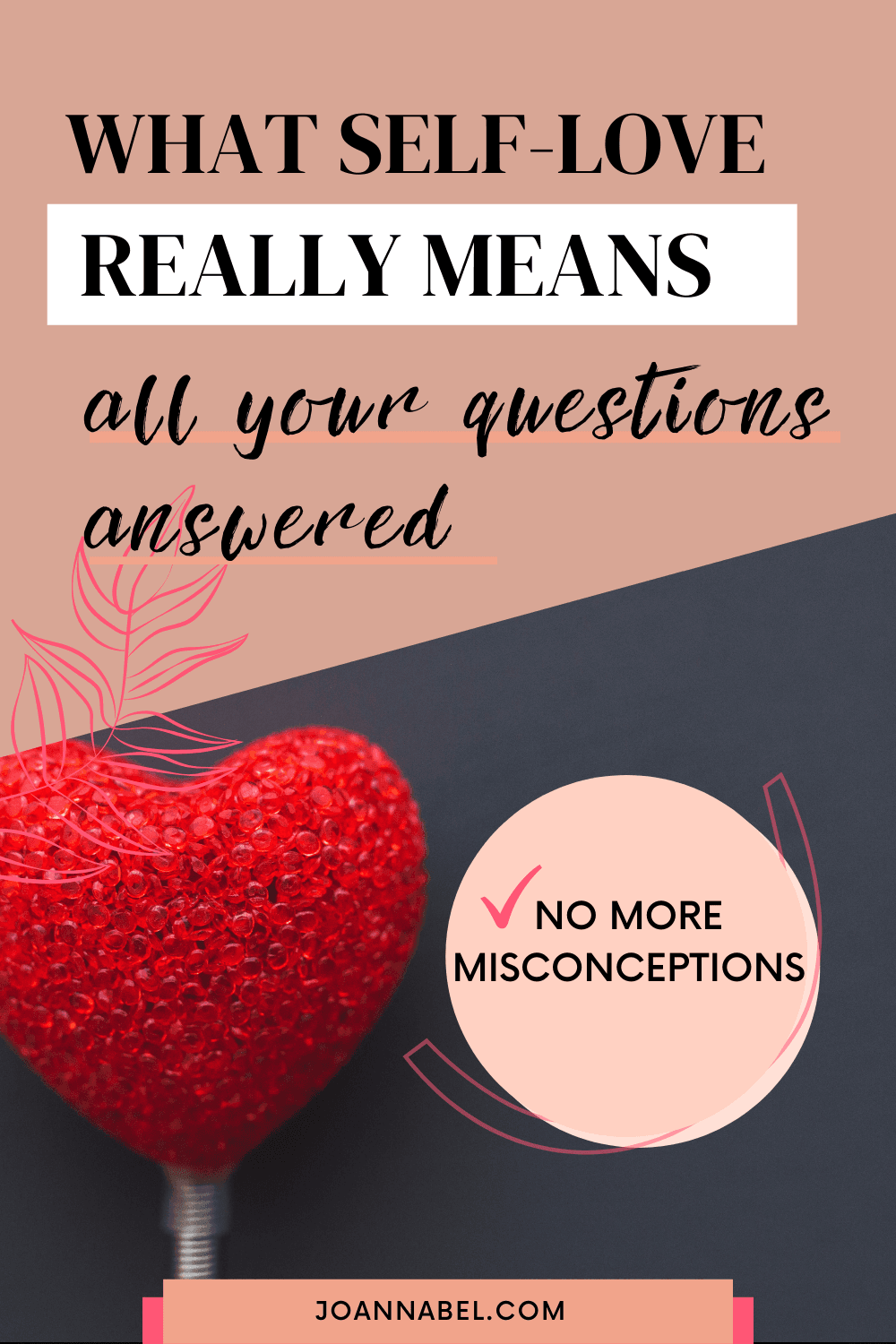
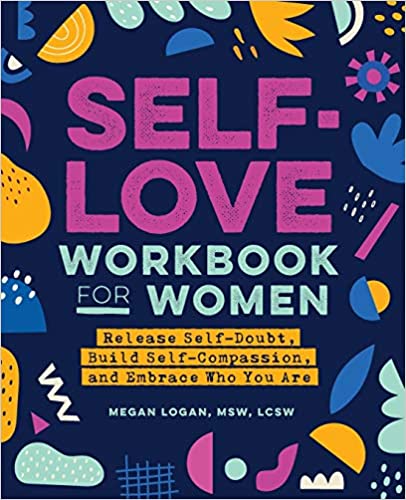
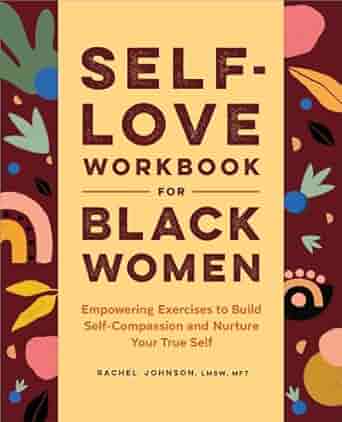
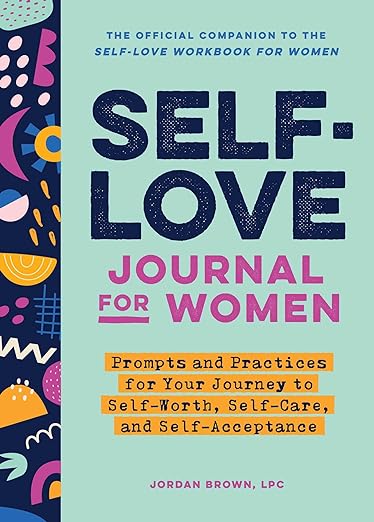
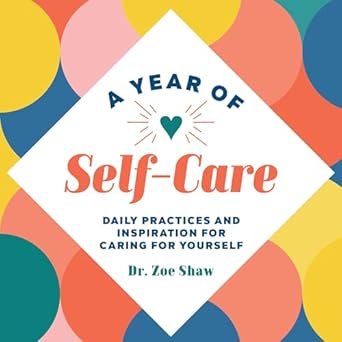
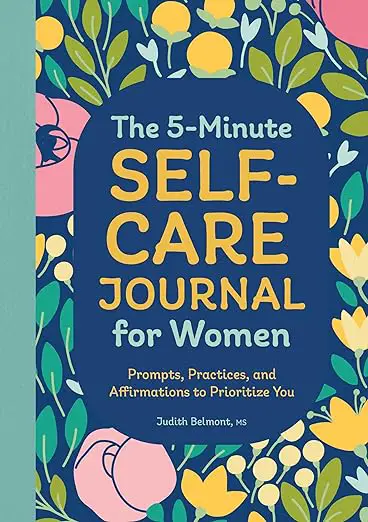

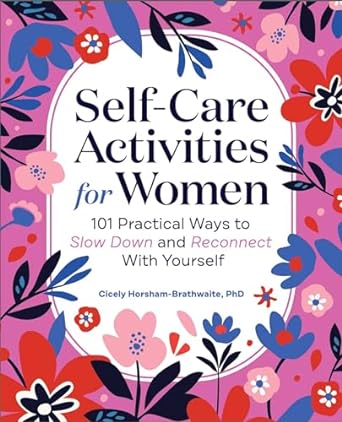








this is a great article, too hard to follow though, too manypop ups and advertisements, very difficult to follow… the links dont all work right…
Hi, Karen, and thanks for taking the time to leave your comment, I truly appreciate it! Especially if you found the post helpful.
Now, regarding the links I’ve checked them all, and they seem to work, just one that linked to a free masterclasses on another platform isn’t active anymore as the platform regularly changes their offer of free classes which is beyond Joanna Bel control. But it’s now changed to link to a program.
And regarding the pop-ups, thanks for the heads-up, you helped me detect that there are parenting pop-ups that don’t belong with this post which will be removed.
Have a great day
Oh wow! So inspirational!
Thank you, Bo! It’s great to have you here! I’m so glad you found inspiration in it 🙂